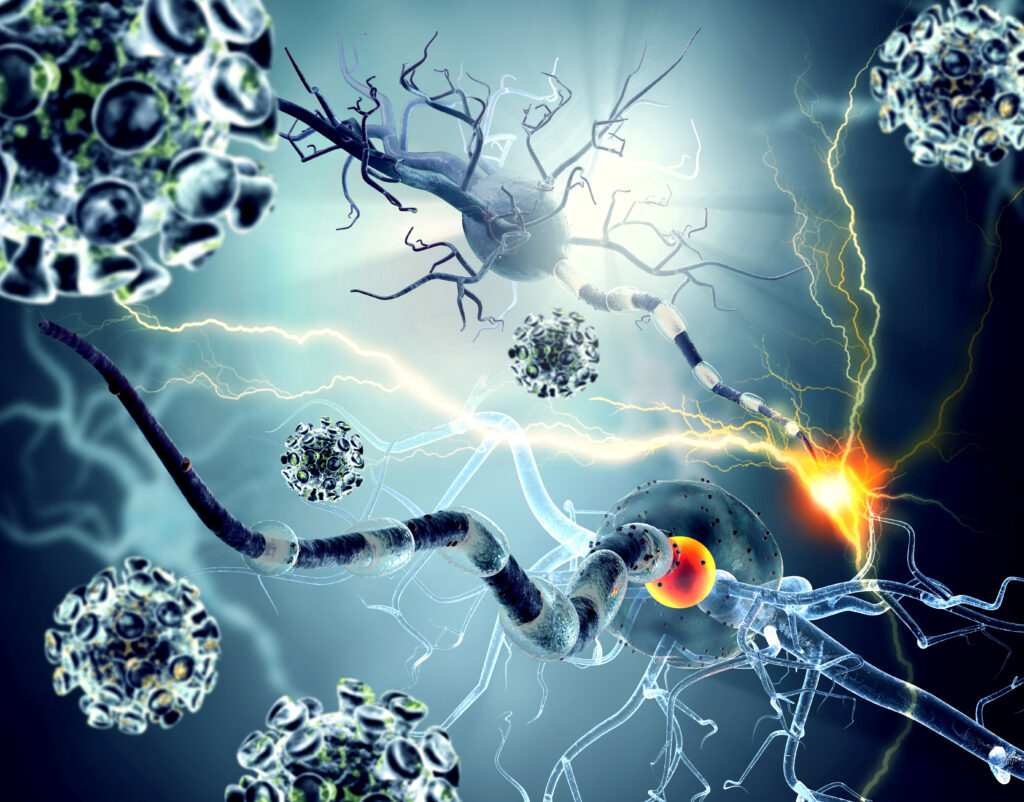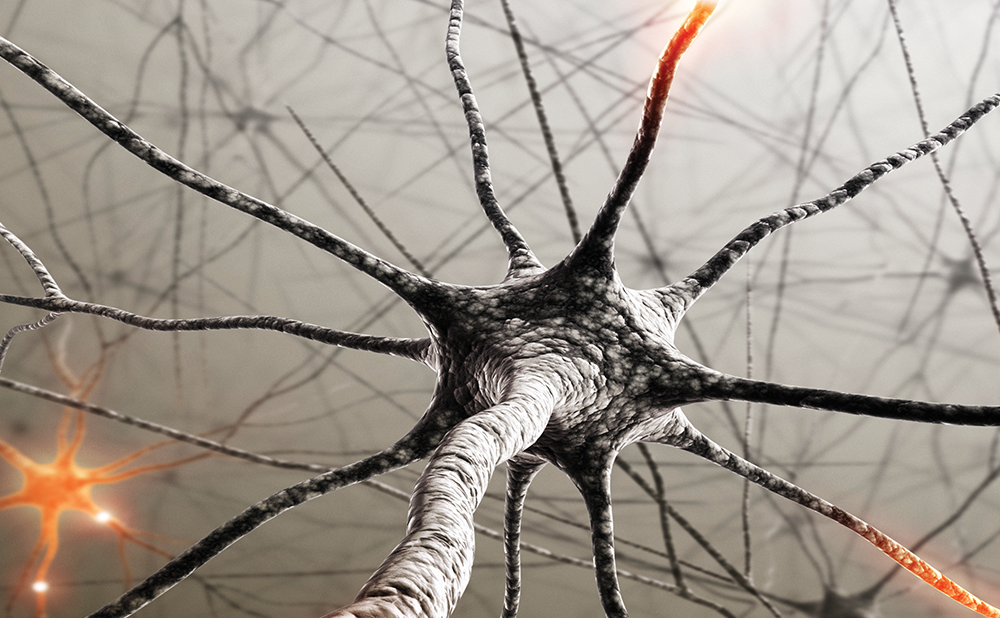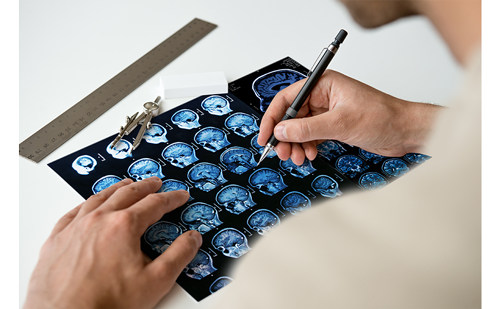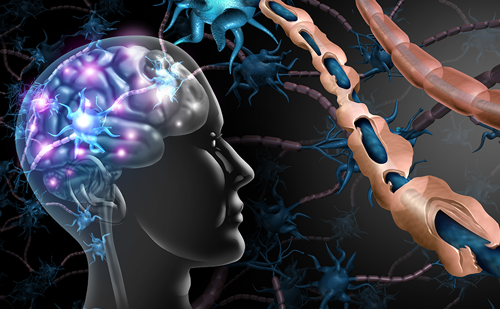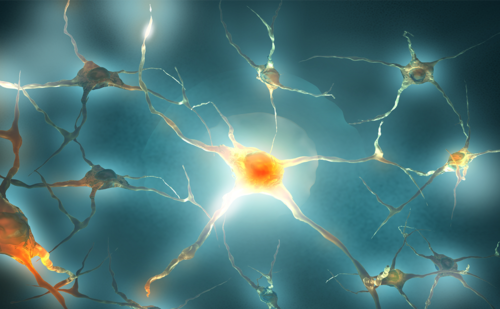Four clinical dimensions can be impaired in multiple sclerosis (MS): neurological function, cognition, emotions, and fatigue. Neurological impairment, cognitive deficits, and fatigue are recognized to be part of the functional handicap and deterioration of quality of life in MS patients, while the effect of emotional impairment, which includes behavioral changes and decision-making difficulties, has been less precisely defined. In this context, neuropsychiatric comorbidity secondary to MS is becoming an important issue in MS medical care, and therapeutic efforts strongly depend on these dimensions. Moreover, the chronic aspect of the disease, individual socio-demographic situations, and the pre-morbid characteristics of each subject, as well as the brain impairment itself, influence neuropsychiatric symptoms in MS and interact with one another. Hence, it is not a surprise that subjective quality of life in MS is dependent on all of these dimensions: for example, suicidal intent of MS patients is related not only to disease-induced mood disorders such as depression, but also to the lifestyle modifications induced by MS such as alcohol abuse and individual habits such as living alone. In addition, other medical parameters such as the MS therapy itself and biographical factors such as coping abilities may influence the ability to cope with and react to such neuropsychiatric symptoms.
In this article we will present some features of these different dimensions and propose diagnostic and therapeutic cures, the latter (both pharmacological and non-pharmacological) being promising but still in their infancy. However, the most effective treatment of neuropsychiatric symptoms at the moment is early causal MS therapy.
Fatigue, cognitive deficits, mood disorders, and affective changes are now recognized as frequent in early MS. It is crucial to differentiate the prevalence of subtle neuropsychiatric alterations in prospective cohort studies from clinically significant impairment, which must be diagnosed in clinical practice. However, prospective studies have shed light on the frequency and potentially devastating effect of such comorbidities, and have thus provided a rationale for efficient screening in everyday practice. We will focus separately on the different groups of symptoms in order to outline an operational approach to each of them.
Fatigue is a multidimensional, motor-perceptive, emotional, and cognitive experience, and in this sense it is highly representative of the neuropsychiatric symptoms found in MS. It can be independent of depression, but correlates highly with mood disorders, decreased levels of action control, and motivational disturbances.1 Objective fatigue-related factors (i.e. “observable and measurable decrement in performance occurring during the repetition of a physical or mental task”) can be dissociated from subjective fatigue, which is characterized by “a feeling of early exhaustion, weariness, and aversion to efforts” similar to (although different from) neurasthenia, as defined by the 10th International Classification of Diseases (ICD-10). Moreover, in many ways fatigue in MS is qualitatively different from fatigue as experienced by stroke patients. It is characteristically relieved by rest and has a strong psychological impact.2
It is not surprising, given the diversity of manifestations of this symptom in MS, that evidence-based therapy for fatigue has been very disappointing, and most clinicians agree that the most successful approach is to adapt the activities of patients. However, there seem to be some pharmacological and non-pharmacological ways to alleviate fatigue symptoms. For example, clinical experience and systematic findings from some small series have suggested that a variety of symptomatic approaches—such as dopaminergic wake-promoting agents (e.g. methylphenidate or modafinil)—but also physical training, yoga,3 or acting on secondary causes—such as reduction of neurogenic pain, management of sleep difficulties, and treatment of depression—may have some beneficial effects in the treatment of fatigue. The challenge before editing guidelines to reflect this is a precise characterization of the type of fatigue for each MS patient.
Cognitive deficits have been estimated to occur in up to 70% of patients during the course of MS. They may also be the primary cause of secondary behavioral and emotional alterations. One example is the influence of impaired working memory on the ability to cope with stressful, complex situations. Cognitive dysfunctions may encompass a variety of functions, including long-term and working memory, interhemispheric transfer (which may lead to alexithymia), problem-solving, executive functions, information processing speed, and attention.
While the clinical profile of MS-related cognitive disturbances is characterized by a subcortical type of impairment, affecting mainly memory and executive functions, the range of neuropsychological deficits encountered in MS have been termed ‘multiple disconnection syndrome,’4 indicating that the cognitive dysfunction seems to be due to manifold interruptions of different interacting fiber systems, leading to mulitiple deficits. Such deficits have also been evidenced in early MS, although the reported prevalences were variable, ranging from 25% to more than 50%.5 Incipient cognitive deficits have also been assessed longitudinally, suggesting that such deficits might be used as predictive parameters of MS evolution and severity.
This impairment can be caused either by a general slowing of information processing or by specific alterations of memory and executive functions. In the everyday life of MS patients, impairment of memory, attention, and concentration faculties, coupled with fatigue, directly affect their personal organization, as well as their vocational functioning and normal family role. Patients who are cognitively impaired are less likely to be working, are engaged in fewer social and vocational activities, report more sexual dysfunction, experience greater difficulty in performing household tasks, and exhibit more psychopathology than cognitively intact patients.6
Pharmacotherapy of cognitive disorders in MS has included a controlled trial of donepezil including 69 subjects; this trial found that donepezil improved verbal learning and memory compared with placebo during neuropsychological testing.7 However, such approaches are in their infancy.
Cognitive rehabilitation in MS is still underdeveloped. Much of our knowledge of cognitive rehabilitation strategies is derived from classic studies with brain-damaged subjects who for the most part had experienced acute brain injury8 or stroke.9 Thus, these rehabilitation approaches deal with the management of diseases that are of an acute onset and stable course. In this case, the predictions about the dynamics of recovery and the determinants of rehabilitation of both the cognitive and physical functions may be of greater reliability, since the set of dysfunctions under treatment have a more constant relationship. In the case of MS this constancy is not given, since the occurrence of new lesions, as well as the reactivation of temporary ‘silent’ lesions and, ultimately, the topical expansion of a given lesion, creates a highly dynamic pattern of brain involvement, at least in the active phase of the disease. This is also reflected at the behavioral level, where a variability and fluctuation of symptoms is common. Thus, while in acute brain injury the sequelae can be restricted to particular physical and cognitive domains, which in turn can produce only time-limited consequences, in a chronic disabling disease such as MS the treatment strategy has to take into consideration the aspect of chronicity.
Nevertheless, there are some promising results, such as self-generating learning approaches10 and training protocols using personal digital assistants. However, according to a recent meta-analysis11 there are only 16 systematic studies of cognitive rehabilitation for persons with MS, only two of which provide practical guidelines. The main problem is that such studies are difficult to respect in terms of evidence-based principles, lengthy, less fashionable than other neuroscience research, and more difficult to publish in high-impact journals. Sponsoring of non-pharmacological interventional studies needs to be encouraged by health policy.
Functional decline, stressful life events, and coping responses may have long-lasting psychological implications in MS, just as they do in other chronic illnesses characterized by unpredictable and often poorly controlled functional decline. However, organic brain dysfunction seems to play an important role in MS affective modifications.12 Although classically described, depression always seems underdiagnosed by neurologists. According to Mohr, 26% of 260 MS outpatients treated by 35 neurologists met Diagnostic and Statistical Manual of Mental Disorders, Fourth Edition (DSMIV) criteria for major depression. Interestingly, of these patients 66% received no antidepressant medication. This suggests that, despite the presence of reliable screening tools to detect depression in MS patients, screening is not yet widely enough adopted,13 a situation that should be changed since inability to cope with stressful events can worsen MS. One possible explanation for this situation is a sort of fatality when confronted by depressive symptoms. Thus, it must be borne in mind that antidepressants reduce the severity of depressive symptoms in MS patients and that controlled trials have demonstrated the effectiveness of cognitive behavioral therapy (CBT) in such patients.
Generalized anxiety disorders seem to be 20 times more common in MS patients than in control subjects, and there is double the frequency of alcohol abuse in the former than in the latter.12 If mood disturbance is the most commonly reported affective disorder in MS, behavioral manifestations have also been described as a variety of personality changes, although it is not possible to identify an ‘MS personality.’ According to Diaz-Olavarrieta, agitation (40% occurrence), irritability (35%), apathy (20%), and disinhibition (13%) are more frequent in MS patients.14 Behavioral manifestations, classically recognized as a variety of mood-related symptoms, include cheerfulness, optimism, denial of disability, and pathological laughing. These behavioral alterations are thought to represent corollary causes of central nervous system (CNS) pathology secondary to MS, and are rather late symptoms of the disease—although they were once considered to be the hallmark of MS. In particular, euphoric mood aberrations seem to be substrate-dependent disturbances, and tend to evolve in parallel with MS duration and severity. Other behavioral changes such as agitation, irritability, apathy, and disinhibition are more frequent and also seem to play an important role in MS perceived handicap. Interestingly, such behavioral modifications not only seem to be due to the neurological characteristics of MS, but also share similarities with chronic non-neurological diseases, suggesting that the chronicity itself plays an important role.15
Finally, MS patients, especially those individuals with a relapsing– remitting disease course (RRMS), show impaired decision-making abilities. Their decreased learning proficiency in the Iowa Gambling Task suggests that poor decision-making is a consequence of impaired learning across the trials. The key point of these observations is that impaired emotional experience, more than cognitive dysfunction, is associated with impaired Iowa Gambling Task performances in RRMS patients.16 Moreover, some studies by Nagy et al. suggest that patients with RRMS show a similar performance to that observed in subjects with ventromedial prefrontal damage, namely that their decisions are guided by recent outcomes irrespective of gain or loss.17 Given the practical consequences of impaired decision-making, the management of such problems may include behavioral as well as interpersonal approaches.
Fortunately, much emphasis has been given recently to making the diagnosis of MS as early as possible18 in order to allow early immunomodulatory treatment induction, with the aim of avoiding the risk of further disease progression. However, MS remains a chronic disorder with a mostly unpredictable course and outcome. In a chronic disorder such as MS, with gradual onset, uncertain course, and periods of deterioration and remission, patients are at risk for developing anxiety and depression that are future-oriented, that is with fear of the unknown. Such anxious reactions may even worsen MS.19 Adaptation to this type of progressive disability includes several intervening factors, such as cognitive impairment, timing of the impairment, pre-morbid coping mechanisms and skills, severity of the functional handicaps, availability of a supportive familial network, and social resources. In particular, the development of specific adjustment strategies by individuals facing a stressful situation with problem-oriented coping seems to lead to better short-term adjustment and a lower degree of disability.20,21
Therefore, disease-modifying therapies, including the immunomodulators broadly used in RRMS, are mandatory to prevent neuropsychiatric symptoms in MS. The intriguing observation is that some of these drugs are suspected to have (minor) influences on mood. Only interferon beta, in comparison with glatiramer acetate and natalizumab, has so far been suspected to induce mood alterations when evaluated in the early double-blind, placebo-controlled trials. However, more recent data support the absence of emotional worsening in MS patients treated with interferon beta for a long period of time, and emphasise the role of increased disability and the presence of baseline depressive symptoms predicting the presence of depressive symptoms at follow-up.22 ■
Acknowledgments
Supported by grants from the Swiss Society for Multiple Sclerosis and the Swiss National Science Foundation (3200BO-104051 and 325100-118362).


